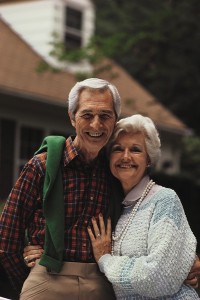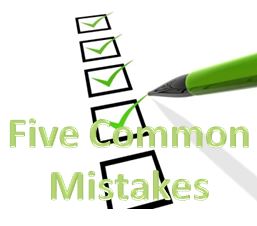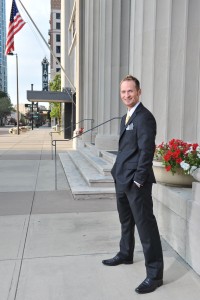
Unfortunately, scammers often target seniors because they tend to have significant savings and generally are less “risk” because of hesitancy to report and difficulties with prosecution (though states are working to change that). Seniors are more likely to be home alone during the day and some may be more trusting. Here are 10 common scams targeting elders that you should know about and share with your elderly loved ones.
1. Sweepstakes and lottery scams
In these types of scams, the elder is informed that they have won a lottery or sweepstakes and need to make some sort of payment to receive the prize. Often, seniors will be sent a check that they can deposit in their bank account, because of the time lag in detecting the fake check. During that time, the criminals will quickly collect money for supposed fees or taxes on the prize, which they pocket while the victim has the “prize money” removed from his or her account as soon as the check bounces.
2. Phishing
This entails a call or email from what appears to be a legitimate company or entity asking for the person to give personal information. Always warn your loved ones not to give out personal information when contacted by their bank or a government institution by phone or email. They can tell the caller that they will contact the institution directly to find out if there is a legitimate need or problem.
3. Charity scams
This can be as simple as mail solicitations for fake charities (or even a “legitimate charity” that simply has very poor financial practices and solicits multiple donations under different names or misuses funds) or this may be done via telemarketing. Charity scams are particularly problematic after natural disasters, when people take advantage of the desire to help.
4. Health insurance/Medicare fraud
Often, scammers use Medicare as an “in” to get personal information for identity theft and fraud. It’s easy enough to guess that most seniors are on Medicare and it tends to lend an authoritative air for the scammer. This type of fraud will rise during Medicare open enrollment periods or changes (or related changes, such as was seen recently with Obamacare which was used as an excuse to get seniors’ information). There is also more direct Medicare fraud, in which fake clinics or services are set up to bill Medicare or a senior’s Medicare number is used to bill Medicare for services never rendered.
5. Home repair fraud
This is a popular scam against Florida seniors, involving all types of home repairs which are then either not completed or done poorly (or unnecessary in the first place/overpriced). Over the years, many families came to us after discovering such issues had been happening to Mom or Dad, which made apparent the need for local care management oversight. A person will come by the home typically and build trust (using techniques like identifying commonalities, which are often lies); they might convince the elder that a repair is needed that is not, or quote a drastically high price. The person will either ask for a deposit or the whole sum and then may not complete the work. New roofs (or roof repair) and water filter scams have been two common categories.
6. Investment scams and reverse mortgage fraud
Seniors tend to be targeted due to their significant retirement savings. This can range from pyramid schemes to outright theft or identity theft. It may also be a matter of an investment professional suggesting inappropriate investments which yield large fees for them. This has commonly been done with certain types of annuities in Florida.
The increased popularity of reverse mortgages has also created a new market for fraud, along with a variety of property fraud. One example was a property tax scam in San Diego, where seniors received personalized letters that appeared to be sent on behalf of the County Assessor’s Office. The letter, which contained public information anyone could obtain, would identify the property’s assessed value and offer to arrange for a reassessment of the property’s value and therefore the tax burden associated with it. The scammers collected a fee for this service, which had no real value.
7. Funeral/cemetery scams
This typically involves taking advantage of seniors when planning a funeral or buying a cemetery plot, with exorbitant fees or fake services.
A scam related to funerals is mentioned below, and thieves have also been known to scour the obituaries to choose an opportune time to break into a home.
8. Imposter fraud (faked familiarity)
The person receives and email or call stating that a loved one or friend has been in an accident and needs money to pay hospital fees. This is also used under the ploy that the person is traveling and has had his/her wallet stolen (this one’s been widely circulated). There is also a sinister “grandparent scam” where the person calls and gets the senior to “guess” that the caller is one of his/her grandchildren, thus obtaining a name to use as a way to get in and get money or steal items.
A related scam that was becoming common a few years back in Florida, is people using obituaries to obtain information to “get in the door”. They would find the names of family members in the obituary to use as a way in…such as saying to the widow, “Your daughter Jane Smith asked me to check in and help out with some things…” (along with very “sincere” condolences). The person would then steal from the home or access information for identity theft.
9. Durable Power of Attorney misuse
A durable power of attorney is a useful tool in estate and incapacity planning, but has the risk that it gives the agent immediate power which can be misused. This type of fraud, unfortunately, is often carried out by a family member or friend. It might also be a neighbor or someone who builds a relationship with the senior to convince them to execute a document so they can “help”.
10. Internet fraud
The internet is often just a new method of perpetrating some of the oldest scams, but allows it to be done more easily with automation and from anywhere in the world. There are also new areas of vulnerability via spyware and viruses.
How can you help your elderly loved ones?
1. Educate them about common scams and key tips, such as not giving out personal information to a caller or via email. Set up a plan when it comes to home repairs or solicitations (scheduling things, reviewing the home’s needs together periodically, telling solicitors that a relative helps with those types of decisions, etc.).
2. Read our article Senior Scams and Florida Elder Exploitation for more tips and resources.
3. Contact our Aging Wisely team for resources and assistance. If you are a caregiver living at a distance from your Florida loved one, consider local oversight by a professional care manager. If you are concerned about ongoing exploitation by a trusted person, our care managers can also help you with approaching your loved one about this, mediating and working through solutions.
Did you like this? Share it:






 Popular Downloads
Popular Downloads


 Get Our Newsletter!
Get Our Newsletter! Mission Statement
Mission Statement

